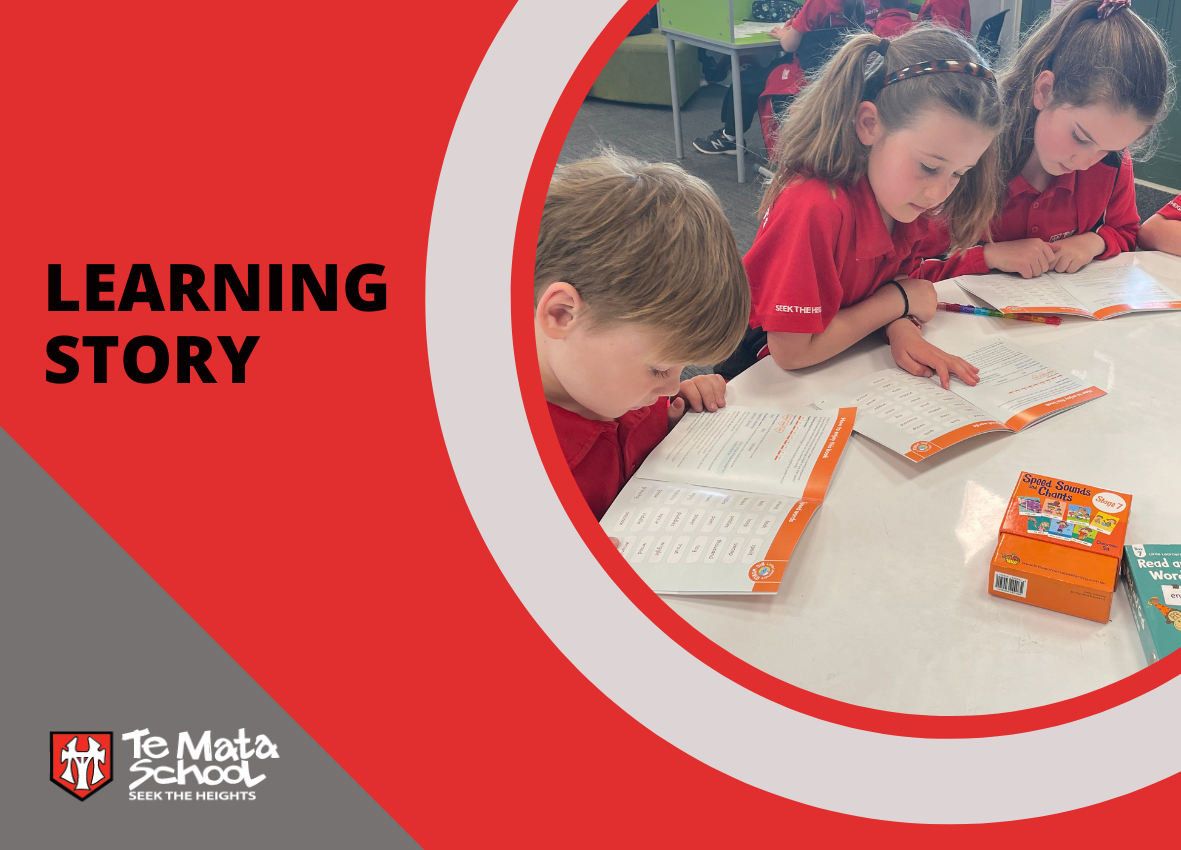


Active Engagement = Readers with Passion
#Middles

Across our Middle School students are immersed in a variety of reading activities and lessons which allow them to build on their current word recognition and language comprehension skills (reading skills).
All children are different and therefore their learning goals and achievements will vary from learner to learner. All of our Middle School students engage in explicit reading lessons, some may read from Junior Journals or School Journals, and others may read from decodable or rich texts. Reading and writing programmes intertwine. As students respond to texts they are asked to express their thinking through writing and sharing thoughts orally. An example of a recent goal in a class is: We are learning about contractions. “This is when you join two words together and then replace the middle part of the second word, then you add an apostrophe” (commented a student during the reading lesson).
Reading - what you can hear and see in classrooms
Learners' actively taking part in teaching sessions
Learners' reading stories for enjoyment as a class or in smaller groups, individually and in pairs. “The books are interesting that we read and we like that they are linked to our sound goals”, commented students in Mahi Tahi.
Vocabulary development.
Learners' reading with expression - making the sounds and reading like the characters.
Learners' sounding words out, using their phoneme fingers and other learnt strategies when needed.
Teachers and students actively practising speed sounds and words together.
Learners' chatting with teachers about how to write words, and how to correctly spell them e.g. Hey, hay, hi/high
Practise worksheets or games being completed to help consolidate knowledge and to improve working memory.
Learners' listening to texts, being immersed in information linked to Inquiry topics.
Research based reading.
Learners' building on prior knowledge and experiences to create a deeper understanding of the world around them. “We can learn more when reading”, shared Te Ako Zone.
Teachers challenging students to critically think about information and use their comprehension skills.
Learners' asking questions as they read to help them develop their understanding. “If we want to learn more we need to ask questions to deepen our understanding”.
Junior Journals are an instructional reading series which begins for learners who are working from early level 2 (Year 3 expectation - the New Zealand Curriculum). School Journals support students at higher levels with developing their knowledge and skills linked to reading (across the greater curriculum). Decodable books are designed to be used as part of an explicit, systematic teaching programme (one part of a Structured Literacy approach). They allow for the practice of a grapheme-phoneme (letter to sound) correspondence which will have already been explicitly taught (linked to specific learning goals that a child might have). Rich texts are stories that are high interest books. Teachers select to use them as they have rich language, great illustrations, factual points that will build knowledge and understanding of the world - these may be visual chapter books or short stories.
If you would like to know more about Structured Literacy See the two below links:
Below is a link to a document containing Patrice O’Connor’s spotlight on Structured Literacy (shared with the community in September 2022 PRINCIPAL’S SPOTLIGHT: STRUCTURED LITERACY
Structured Literacy - Ministry of Education Website Link
Article added: Tuesday 19 September 2023


Contact
Location